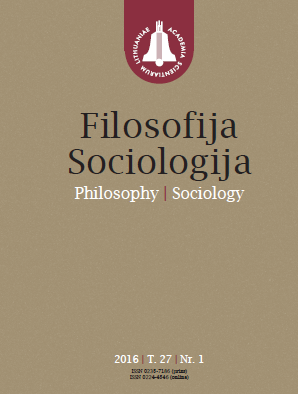Medžioklės diskursas baroko kultūroje: fenomenologinis žvilgsnis ir jo dekonstrukcija
The discourse of hunting in Baroque culture: phenomenological approach and its deconstruction
Author(s): Vaiva KlajumaitėSubject(s): Anthropology, Philosophy, Social Sciences, Sociology, Modern Age, Culture and social structure , Phenomenology
Published by: Lietuvos mokslų akademijos leidykla
Keywords: Baroque; Ortega y Gasset; hunting; court society; discourse; representation
Summary/Abstract: The main hypothesis of this paper states a dual perception of the hunting phenomena in Baroque culture. On the one hand, this action was a specific activity of the noble people during their leisure time. On the other hand, poetics of hunting spread into the existential level and became the main allegory in order to express the way of being. This research is based on three artistic manisfestations (the poem “Silviludia” by the Lihuanian poet M. K. Sarbievijus, the Dutch baroque painting by Rembrandt and the sculptural composition of the Zapyškis Church in Lithuania). The main theoretical basis is the phenomenological approach, especially the “Meditations of Hunting” written by José Ortega y Gasset. Nevertheless, these tools are revealed as not sufficient to the Baroque material. Postmodern deconstructive approaches are needed. The hunting discourse in the Baroque culture does not obey to the Great narrative and splits into multiple variations of representation: as the allegory of the society of court, as the way of ironical thinking and desacralisation.
Journal: Filosofija. Sociologija
- Issue Year: 2016
- Issue No: 1
- Page Range: 70-78
- Page Count: 9
- Language: Lithuanian

